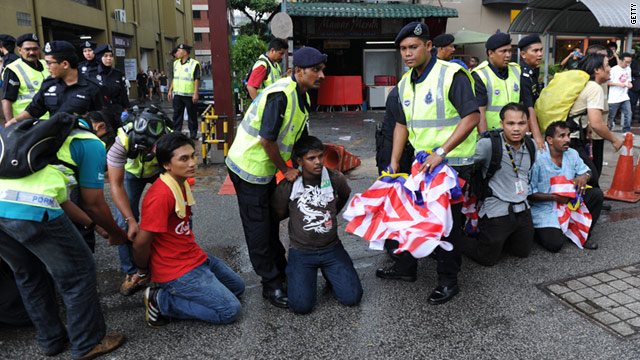By Emilee Gaebler
Impunity Watch Reporter, South America
BOGOTÁ, Colombia – The Colombian government has faced public international outcry since 2008 when what has been termed, the “false positives” scandal, first surfaced. A false positive occurs when the army kills innocent civilians and passes them off as enemy guerilla combatants in order to falsely inflate their kill counts. A number of recent convictions and indictments of army officials and soldiers are the most recent developments in the “false positives” scandal.
On June 29, 2011, eight Colombian soldiers were sentenced for killing four innocent men in the province of Antioquia back in June of 2006. The four farmers were pulled out of their homes by the soldiers, shot in the back and then the soldiers disguised the bodies by placing guerilla uniforms on them. All eight soldiers were given 60 years in prison, the maximum sentence, for their participation in the “false positives” slayings.
Major Orlando Arturo Cespedes Escalona was indicted just a week later on July 5, 2011 for the murder of 11 innocent civilians in Sucre. Back in the summer of 2007, the 11 farmers were offered $426 in order to do some work on a farm but when they showed up they were murdered. The 11 deaths were falsely reported months later as guerilla fighters who were killed in a skirmish.
Escalona’s commander Colonel Luis Fernando Borja was sentenced to 20 years in prison for his participation in the 11 murders in Sucre. Borja admitted that in 2007 two men were enticed by soldiers from his unit offering paid work opportunities and then killed. Borja is the most senior official sentenced so far in this scandal which has been linked to almost 1,500 members of the military.
The “false positives” scandal evolved out the body bag culture of the Colombian army where soldiers are rewarded with extra pay, days off and promotions when they kill a high number of rebel combatants. Currently, there are over 1,400 cases of “false positive” murders being investigated in Colombia.
For more information please see:
BBC News – Colombian Colonel Sentenced for Faking Civilian Murders – 14 July 2011
BBC News – Colombians Soldiers Jailed for “False Positive” Killings – 6 July 2011
Colombia Reports – 8 Soldiers Convicted of “False Positive” Murders Receive Maximum Sentence – 6 July 2011
Colombia Reports – Army Major Indicted for “False Positive” Killings – 5 July 2011
Colombia Reports – Seven Colombian Military Members Sentenced for “False Positives” – 30 June 2011




